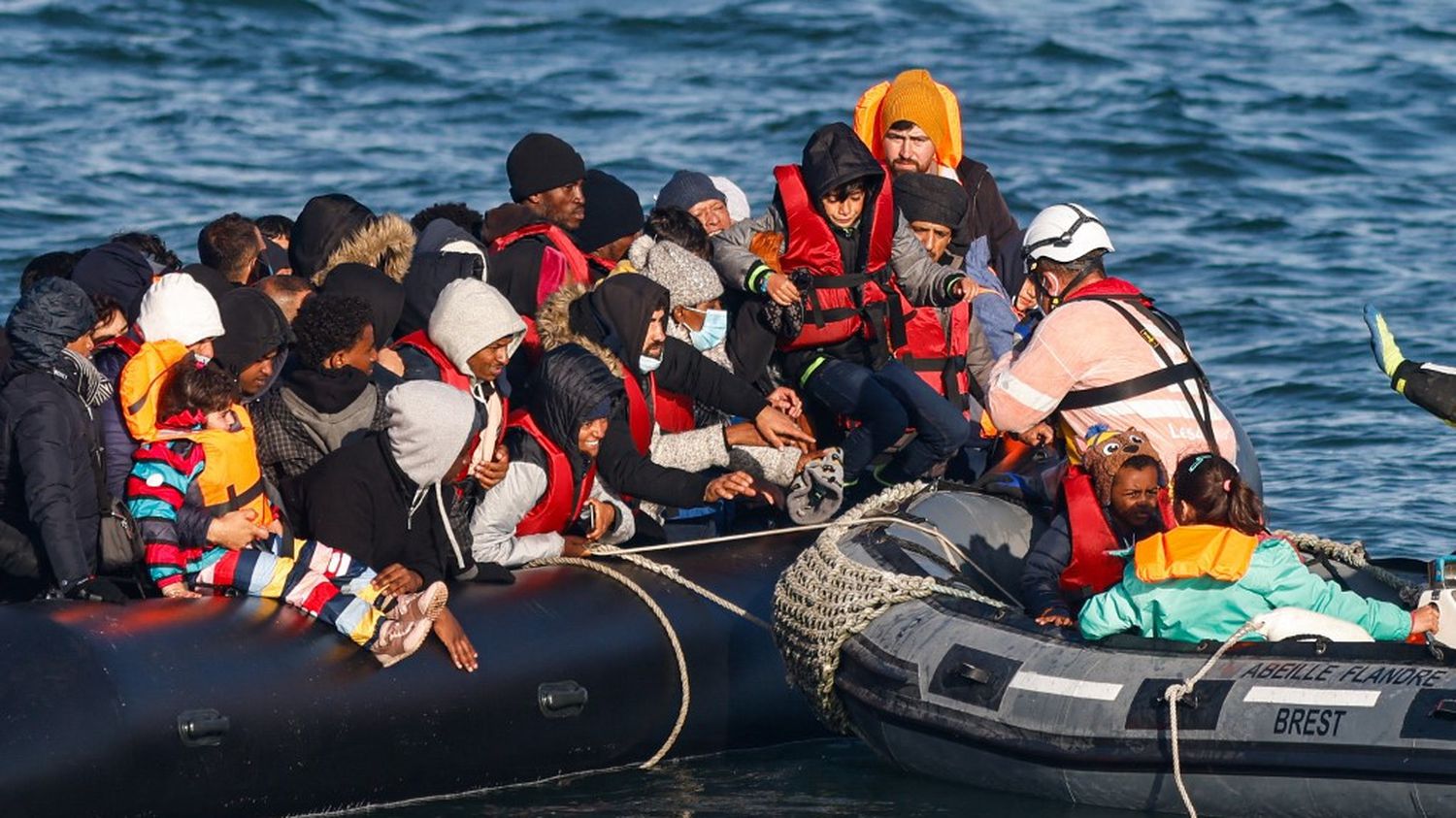They are safe and sound. Fifty-six migrants in difficulty were rescued in the Channel, while trying to reach the United Kingdom on a makeshift boat, announced Tuesday May 10 the maritime prefecture of the Channel and the North Sea. Present on the rescue tug during the intervention, AFP journalists identified a large number of nationalities on board, including African nationals, Eritreans, Ethiopians or Nigerians, as well as Afghans, Vietnamese or people from Maghreb declaring to come from Egypt.
The inflatable boat, a black “long boat” with a broken down engine, had been reported Monday morning off Pas-de-Calais. A pregnant woman and her five children were the first to be rescued. Several other children were among the castaways. All were recovered on board the tugboat, equipped with dry clothes – and for women and children, comforted with biscuits or stuffed animals – then landed at the port of Boulogne-sur-Mer, and taken care of by the firefighters of Pas -de-Calais and the border police.
The phenomenon has become “industrialized”
Since the end of 2018, illegal crossings of the English Channel have multiplied despite repeated warnings from the authorities, who stress the danger linked to the density of traffic, strong currents and low water temperature. According to the director of the Regional Operational Center for Surveillance and Rescue (Cross) Marc Bonnafous, the phenomenon has “industrialized”with boats “more than 12 m loaded with 30 to 50 people”. In 2021, 52,000 people attempted the crossing, five times more than in 2020, and 28,000 made it, according to UK data.
Already more than 7,000 migrants have reached British shores since January, three times more than in 2021 at the same time. These perilous crossings also take lives: in 2021, 38 migrants died, including 27 in the same shipwreck on November 24, according to the maritime prefecture. To discourage crossings, the UK government recently enshrined a controversial asylum reform into law. The new law has been sharply criticized by international and refugee aid organisations.
